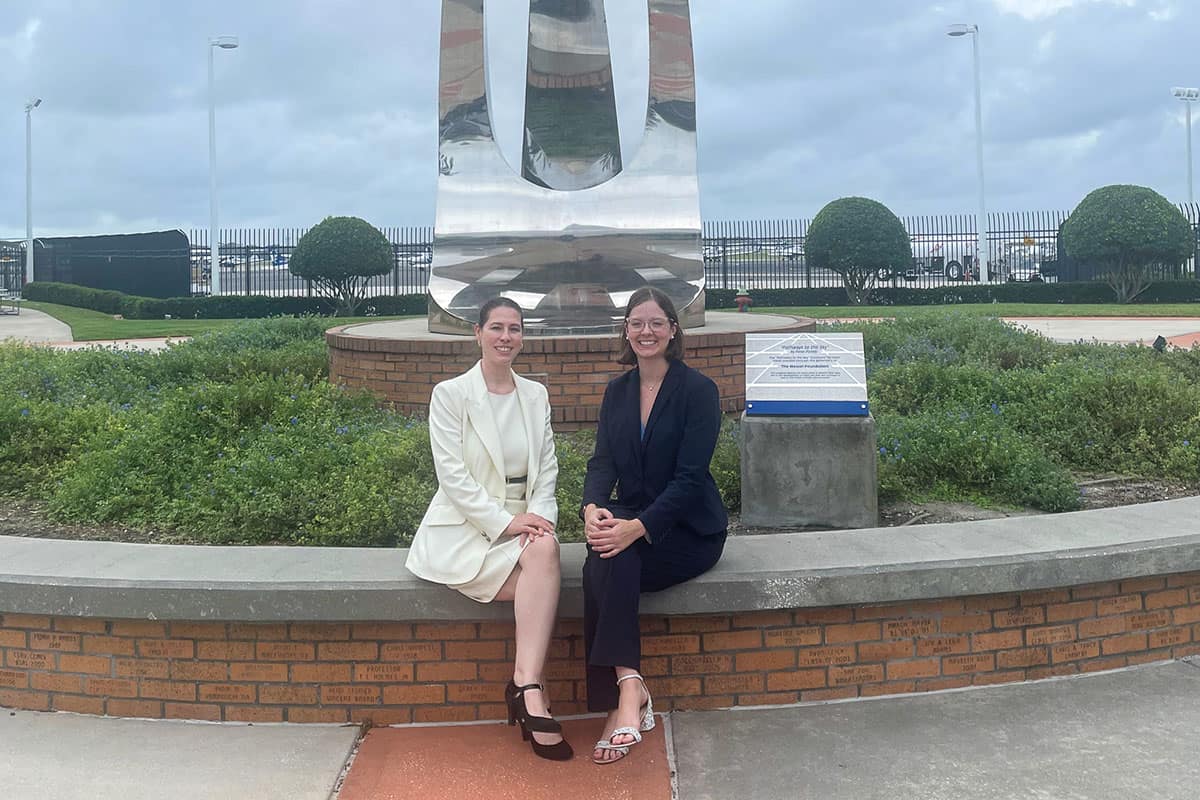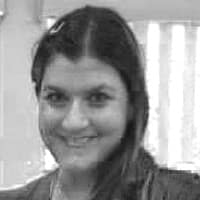Embry-Riddle Researchers Explore Balancing Space Innovation With Dark Sky Preservation

Satellites have revolutionized the way people communicate, but the light pollution they create can have impacts on astronomical and other scientific research.
“There is a gap in general understanding that light pollution also exists in outer space because of satellites,” said Embry-Riddle Aeronautical University doctoral student Kayla Taylor. “There is also ‘noise’ pollution involving electromagnetic radiation that is interfering with other kinds of astronomy and science.”
Taylor and Dr. Sara Langston, assistant professor of Space Operations, are exploring the legal and ethical considerations for balancing space innovation and dark sky preservation and sharing their findings with the international community. Their research analyzes the benefits of dark, quiet skies and the significance of protecting astronomy in a booming satellite mega-constellation industry. Langston presented on the topic in November at the United Nations Office of Outer Space Affairs (UNOOSA) conference in Vienna, Austria.
Light pollution refers to man-made light that artificially brightens the sky, which can impair the ability to view the natural night sky, including stars and meteor showers. Additionally, research has shown that light pollution can negatively impact human, animal and plant health in many ways, such as disrupting circadian rhythms.
Noise pollution refers to the electromagnetic radiation that satellites emit that can interfere with scientific observations. Radio astronomy, which uses supersensitive antennas to detect faint radio signals emitted by stars, black holes and other objects in the universe, can be particularly affected, according to research.
“Satellites provide us with a lot of benefits, so it is not simple enough to say let’s stop launching satellites or satellites constellations,” said Langston. “Everything is a value-benefit cost analysis, and it is a trade-off, but we can look at ways to mitigate the situation or establish certain thresholds.”

Dr. Sara Langston, assistant professor of Space Operations, presented on the topic of balancing space innovation and dark sky preservation in November at the United Nations Office of Outer Space Affairs (UNOOSA) conference in Vienna, Austria. (Photo: Embry Riddle/Dr. Sara Langston)
Taylor said the research examines the positive value of dark skies and the significance of protecting astronomy through existing international and national law and policy. It also discusses relevant ethical values and moral considerations that can guide law and policymakers to establish practical ways to balance the conflicting interests of astronomers and satellite operators.
Taylor and Langston published their findings in a paper titled, “Evaluating the benefits of dark and quiet skies in an age of satellite mega-constellations,” in the academic journal Space Policy. An op-ed they wrote was published in Space Watch Global, a space industry journal.
Taylor, who is currently a Ph.D. student in Electrical Engineering and Computer Science, credits Langston with helping her merge her diverse interests in astronomy, astrophysics, aviation and space studies into an interdisciplinary research project.
“I would not be in this position without Dr. Langston. Her mentorship has guided my studies,” said Taylor, a native of Sarasota, Florida, who also earned her B.S. in Astronomy and Astrophysics from Embry-Riddle. “Our research takes law, policy and ethics and combines it with space.”
Space law may seem like a new concept, but in 1967, the United Nations adopted the Outer Space Treaty, which 136 nations have signed to date and lays the foundation for international space law.
Langston, who was born in Kuwait and raised in Europe, is an international aerospace lawyer and U.S. Army veteran with a technical aviation background. She was an inaugural member of the Space4Women, a UNOOSA project aimed at encouraging more women to pursue space and STEM careers. She also assists with UNOOSA’s Space Law for New Space Actors project, which helps other countries with developing space law and policy in line with international frameworks.
Taylor started working with Langston nearly three years ago when she took Langston’s graduate-level Advanced Space Law and Policy course. With Langston’s guidance, Taylor developed her research idea for a final class paper, which was accepted for presentation at the 2022 International Astronautical Congress in Paris. As a master’s degree student in Aviation with a specialization in Space Studies, Taylor continued working with Langston in 2023 to refine her research for publication.
“Kayla is very good with communicating and articulating the science, which is a very unique skill set that a lot of people don’t have,” said Langston.
The first in her family to attend graduate school, Taylor is continuing to build on her knowledge, now working on doctoral research related to using artificial intelligence and machine learning applications in the aerospace industry. Her goal is to eventually work as a research scientist or a machine learning engineer for an aerospace company, applying all the knowledge she’s gained at Embry-Riddle.
“I really love the interdisciplinary aspect of taking skills from multiple fields and applying them,” she said. “So, I’m very open-minded about my future goals.”

 Melanie Stawicki Azam
Melanie Stawicki Azam